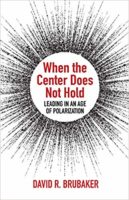History’s most transformational change agents—Jesus of Nazareth, Mahatma Gandhi, Martin Luther King, Jr., and others—engaged consistently in three kinds of activity: they built movements, they spent years working for change, and they demonstrated a deep love for the individuals and societies they were striving to change.
- Jesus taught and modeled love for God, love for neighbor, and even love for enemies.
- Mahatma Gandhi embraced all citizens of India, regardless of their identity, and taught, “Whenever you are confronted with an opponent, conquer him with love.”
- Dr. Martin Luther King also stressed nonviolent resistance to oppression, noting that “Darkness cannot drive out darkness; only light can do that. Hate cannot drive out hate; only love can do that. And, “whom you would change, you must first love.”
The principle that we must first love those we wish to change is relevant even at the most personal level—changing ourselves. Efforts to change ourselves that stem from disgust or disappointment are likely to flounder, whereas change commitments that emerge from an appreciation of who we are and a loving desire to be a better human tend to take root. And what is true at the individual level holds also at the corporate one.
Passion, Desire, and Belief
There are many possible motivations for working for change in a congregation or other organization. We may be motivated by a passion for inclusion—wanting those who have been historically marginalized by our religious tradition to be fully welcomed and included. We may desire a changed worship experience—believing that younger members will continue to exit the congregation unless they find relevance in the rituals. Or we may believe that decision-making needs to be decentralized so that more voices will participate in discernment processes.
Regardless of the issue on which we have focused our change efforts, the motivation for those efforts is what will most likely determine our success or failure. When others sense that our motivation in advocating for change is genuine concern for those on the margins and a deep love for the congregation itself, we are more likely to achieve successful change.
Anger and Love
Anger at injustice has a place in our efforts at loving change, because anger and love can travel together. According to Elie Wiesel, the opposite of love is not hate, it is indifference. Anger can shake us out of apathy and motivate us to action. Anger may not be enough to sustain a movement for change, but it has jump-started many.
Love matters. The Beatles may have oversimplified the principle (“All we need is love”), but they were on the right track. Here are three questions for determining your likelihood of success when working for change in your congregation or other organization.
- How committed are you to this congregation or organization and the people who comprise it? If you care about this place and these people, that commitment and care will be evident to those you are trying to influence. If you do not care about the people, you have more reason to exercise “exit” than “voice.”
- How passionate are you about the issue or change initiative that you are now contemplating? If this is an issue or concern for which you are willing to sacrifice something of value (your time, your reputation), then it may merit the investment that will be needed to bring about change.
- How likely are you to be able to build a coalition of others who share your love for the congregation and your passion for the change that is needed? Regardless of your own commitment and passion, a team of committed change agents is almost always necessary to achieve genuine systemic change. As I’ve written previously, Lone Rangers always fail.
Do you love this place and these people? Are you willing to make some sacrifices to achieve change? Are there others who share your commitment and passion? If so, your odds of effecting change are good. If not, you would be wise to save your energies for another day and issue. We can only change what we first love.
David Brubaker has consulted with organizations and congregations in the U.S. and a dozen other countries on organizational development and conflict transformation. He is the author of Promise and Peril, on managing change and conflict in congregations, and When the Center Does Not Hold, on leading in an age of polarization. David recently retired from his role as Dean of the School of Social Sciences and Professions at Eastern Mennonite University, and is now a Professor Emeritus of Organizational Studies.



